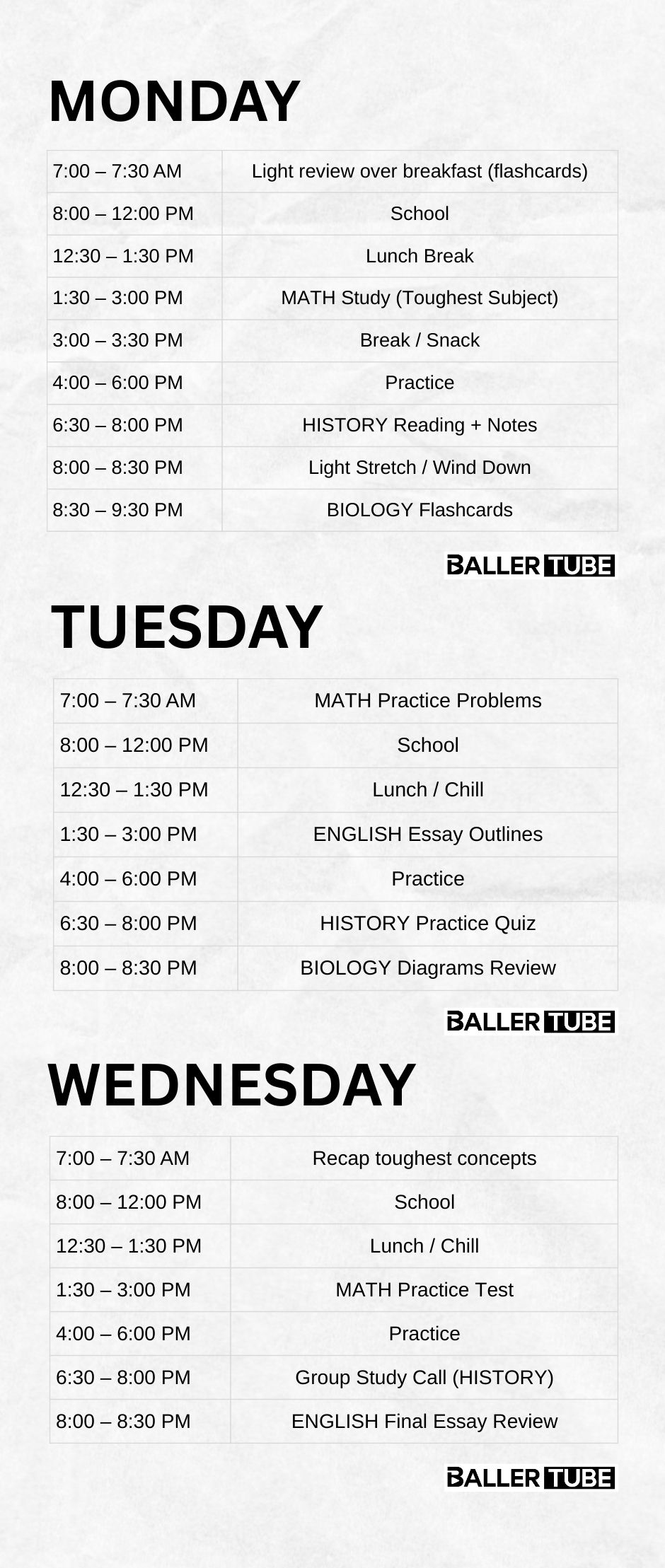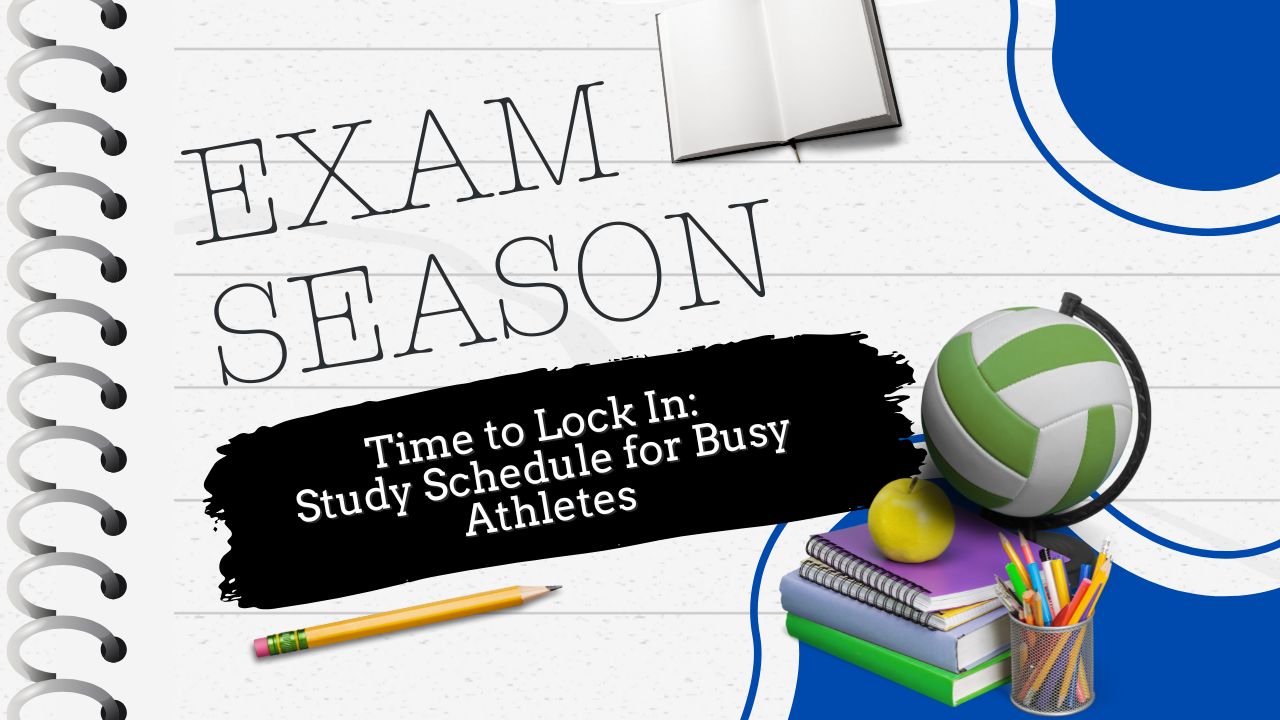Athletes live by structure — practice schedules, lift times, film sessions, and game day routines. That same mindset applies to exam prep. Walking into finals week without a study plan is like showing up on game day with no plays drawn up.
Here’s how to build a solid study schedule that actually works:
1. Block Off Time Like Practice
Treat study blocks like non-negotiable appointments.
-
Use a digital calendar (like Google Calendar) or a physical planner.
-
Set 60–90 minute blocks with short breaks in between.
-
Include buffer time in case something runs long.
2. Prioritize High-Impact Subjects
Don't split time evenly — give more time to:
-
Classes where your grade is borderline.
-
Subjects with the most material or toughest concepts.
-
Exams worth the biggest percentage of your final grade.
3. Stick to the Time Slots
When it's time to study, go all in — no distractions.
-
Turn your phone on Do Not Disturb.
-
Close extra browser tabs or apps.
-
Treat it like a workout — push through even if you're tired.
4. Schedule Based on Energy
Not all hours are created equal. Most people are sharper early in the day.
-
Do your hardest studying when you're most alert.
-
Save reviews, flashcards, or easier subjects for later in the day.
-
If you’re a night owl, just flip the logic — own your natural rhythm.
✅ Sample 3-Day Study Schedule for a Student-Athlete
Scenario: You have 4 exams coming up — Math (your toughest subject), History, Biology, and English. You also have basketball practice from 4–6 PM daily.




